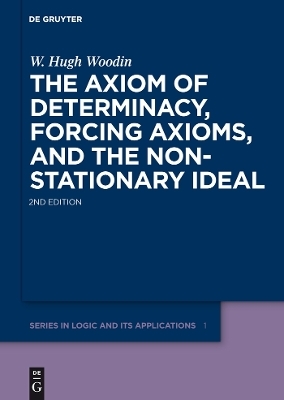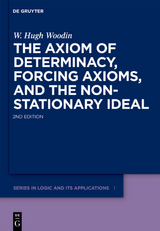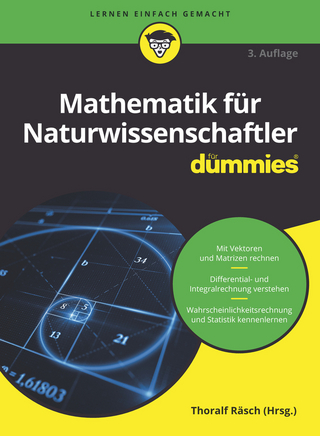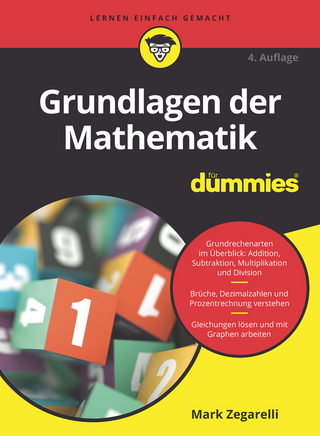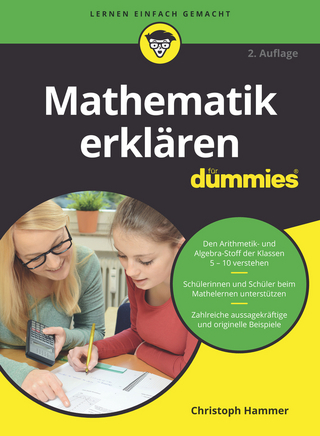The Axiom of Determinacy, Forcing Axioms, and the Nonstationary Ideal
Seiten
2010
|
2nd rev. ed.
De Gruyter (Verlag)
978-3-11-019702-0 (ISBN)
De Gruyter (Verlag)
978-3-11-019702-0 (ISBN)
The series is devoted to the publication of high-level monographs on all areas of mathematical logic and its applications. It is addressed to advanced students and research mathematicians, and may also serve as a guide for lectures and for seminars at the graduate level.
The starting point for this monograph is the previously unknown connection between the Continuum Hypothesis and the saturation of the non-stationary ideal on ω1; and the principle result of this monograph is the identification of a canonical model in which the Continuum Hypothesis is false. This is the first example of such a model and moreover the model can be characterized in terms of maximality principles concerning the universal-existential theory of all sets of countable ordinals. This model is arguably the long sought goal of the study of forcing axioms and iterated forcing but is obtained by completely different methods, for example no theory of iterated forcing whatsoever is required. The construction of the model reveals a powerful technique for obtaining independence results regarding the combinatorics of the continuum, yielding a number of results which have yet to be obtained by any other method. This monograph is directed to researchers and advanced graduate students in Set Theory. The second edition is updated to take into account some of the developments in the decade since the first edition appeared, this includes a revised discussion of Ω-logic and related matters.
The starting point for this monograph is the previously unknown connection between the Continuum Hypothesis and the saturation of the non-stationary ideal on ω1; and the principle result of this monograph is the identification of a canonical model in which the Continuum Hypothesis is false. This is the first example of such a model and moreover the model can be characterized in terms of maximality principles concerning the universal-existential theory of all sets of countable ordinals. This model is arguably the long sought goal of the study of forcing axioms and iterated forcing but is obtained by completely different methods, for example no theory of iterated forcing whatsoever is required. The construction of the model reveals a powerful technique for obtaining independence results regarding the combinatorics of the continuum, yielding a number of results which have yet to be obtained by any other method. This monograph is directed to researchers and advanced graduate students in Set Theory. The second edition is updated to take into account some of the developments in the decade since the first edition appeared, this includes a revised discussion of Ω-logic and related matters.
W. Hugh Woodin, University of California, Berkeley, USA.
"[...] the final book is now the definitive word, impressive in context and pleasing to the eye." Review of the first edition - Mathematical Reviews
"The author began in 1992 with the writing of his book. It gives a deep insight into the relationship between large cardinals, descriptive set theory and forcing axioms. It is a great pleasure that his results are now available in a book." Review of the first edition - Zentralblatt für Mathematik
| Erscheint lt. Verlag | 16.7.2010 |
|---|---|
| Reihe/Serie | De Gruyter Series in Logic and Its Applications ; 1 |
| Verlagsort | Berlin/Boston |
| Sprache | englisch |
| Maße | 170 x 240 mm |
| Gewicht | 1560 g |
| Themenwelt | Mathematik / Informatik ► Mathematik ► Allgemeines / Lexika |
| Mathematik / Informatik ► Mathematik ► Angewandte Mathematik | |
| Mathematik / Informatik ► Mathematik ► Logik / Mengenlehre | |
| Schlagworte | Axiome der Konstruierbarkeit • Axioms of Constructability; Logic; Set Theory • Continuum Hypothesis • forcing • Hardcover, Softcover / Mathematik/Grundlagen • Kontinuumshypothese • Logik • Mathematical Logic • Mathematical Logic; Set Theory; Continuum Hypothesis • Mathematische Logik • Mengenlehre • set theory |
| ISBN-10 | 3-11-019702-2 / 3110197022 |
| ISBN-13 | 978-3-11-019702-0 / 9783110197020 |
| Zustand | Neuware |
| Haben Sie eine Frage zum Produkt? |
Mehr entdecken
aus dem Bereich
aus dem Bereich
